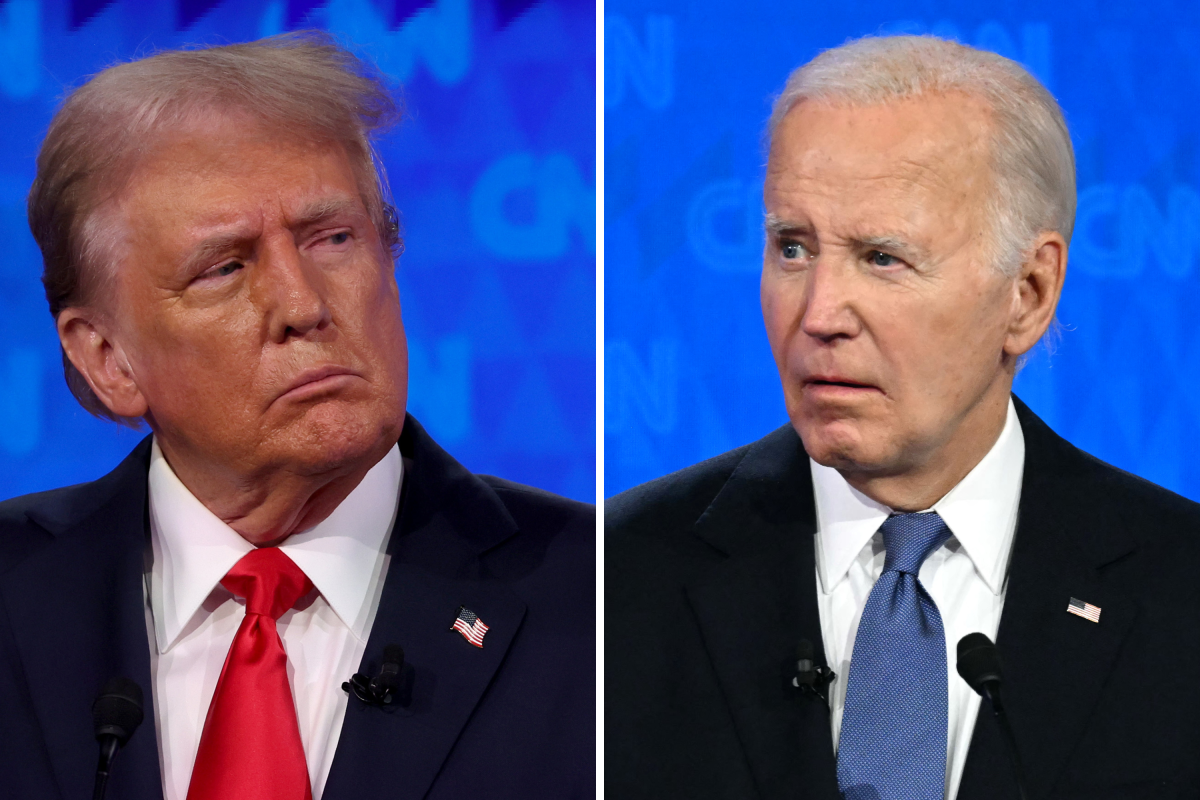For years, average Americans were told by the mainstream media that President Biden is fine. Any questioning of his mental acuity was dismissed out of hand. The media’s tune shifted drastically after tens of millions of Americans witnessed Biden’s geriatric turbulence during the debate last Thursday against former President Donald Trump. Only then did these same media figures begin to acknowledge previously-dismissed concerns as valid and deeply concerning.
Why were these obviously valid concerns shuffled offstage like Biden himself? For a simple reason: The administration and media believe that it is okay to lie to us. The radical shift of narrative is only the latest example of a condescending media and political administration taking Americans for a ride. They think we’re stupid. And their contempt runs so deep that they don’t feel the need to explain to us why our concerns are wrong.
If Biden had never debated Trump, they probably would have been able to get away with the charade, continuing to deny that Joe Biden is really old and not doing well without notable consequence. But since Biden did debate Trump, they were left with a piping hot potato in their hands and nowhere to go with it. They had no choice but to address the obvious. The media, along with much of the Democrat political machine, now wants Joe Biden to step down. He is, to quote hundreds of articles and clips that have ran since the debate, “not up to the task.”
From a certain point of view, this coordinated attempt to force a political result through extra-electoral means shouldn’t have surprised us. For years now, American politics has been organized around personality over policy, thanks to Donald Trump. The Democrats could replace Biden with a broomstick and it would still capture much of the Democrat base in an election against Trump. And on the Republican side, you have Trump’s infamous “Fifth Avenue” comment, which turned out to be accurate; there doesn’t seem to be anything he could do that would shake his party’s—and supporters’—embrace of him.

Justin Sullivan/Andrew Caballero-Reynolds/AFP via Getty Images
Thanks to this politics of personality, not policy, political campaigns are tied up in enraging their political bases to mobility as opposed to communicating clear policy ideas. The hope of garnering support from the independent and undecided voters who loiter between the Republican MAGA compound and the Democrat “this election is for the sake of democracy” ilk is secondary. There is no need for a candidate to explain why they are good; they just need to scream loudly that the other guy is very bad.
Presidential debates no longer deal in the nitty-gritty of policy. Politicians act like they are convinced Americans have no real policy convictions. This is where the crisis of legitimacy comes from.
For us to truly be a democracy, Americans must become more formidable to our media and politicians.
How?
By seeking to clearly understand what we love and believe. By have requirements for politicians to earn our votes. By having a vision for what we want this country to look like. By having specific policies we know would help us.
Years ago, I was asked what I would expect Trump to do to support the American family more. I had just finished complaining about how the American family has been abandoned by politicians. I responded with typical conservative layman bone-pickings about what liberal politicians needed to stop doing, to which my inquisitor rightfully said, “No, I get what you want your opposition to stop doing. But what do you want your guy to do specifically on top of that?” In other words, what kind of policy would I like to see enacted?
At the time, I couldn’t really answer the question, not in a way that made it seem like I knew what the hell I was talking—at least when it came to real policy ideas. I was just a mindless conservative windsock. I didn’t really think about the details of how my professed political beefs would be addressed. I felt a certain way, but I hadn’t pragmatically searched those convictions for actionable desires. With continual effort, I have worked at correcting this shortcoming, and it’s helped make me feel a bit less like public figures have a bit in my mouth.
It is possible for Americans en masse to have clear policy convictions that are grounded solidly by well-researched personal beliefs. This would result in discovering unpleasant truths about ourselves as well as the leaders who we once supported like our lives depended on it. But we would have better opinions—and leaders.
An informed citizenry that takes themselves seriously and holds themselves accountable would allow the people to put the bit in the mouth of politicians—not the other way around. If we have the humility to ask ourselves if we really believe what we say we believe and why, it will result in a more measured and formidable society.
Or, at the very least, it would result in a media and political class that might think twice about telling us that a senile man isn’t senile.
Skyler Adleta is an electrician in Cincinnati, Ohio.
The views expressed in this article are the writer’s own.













































